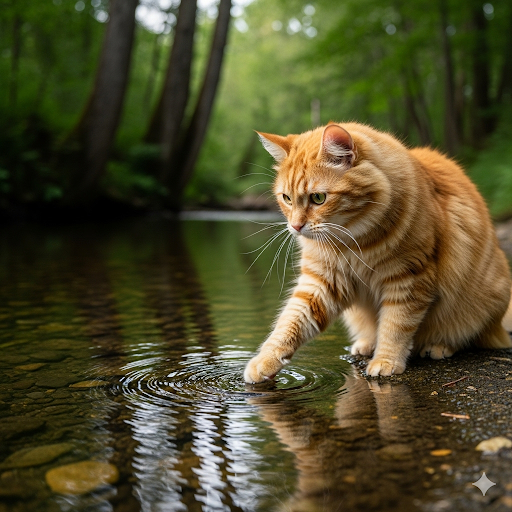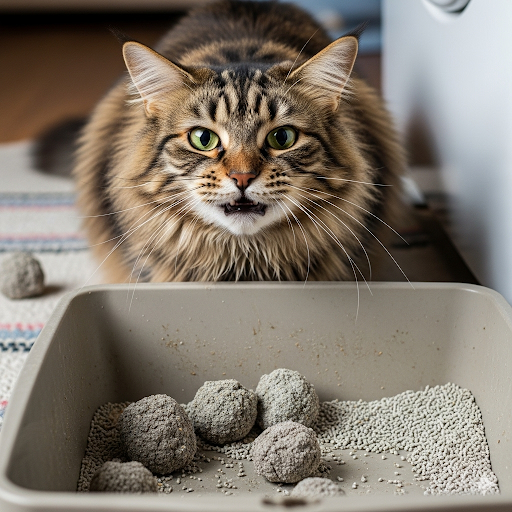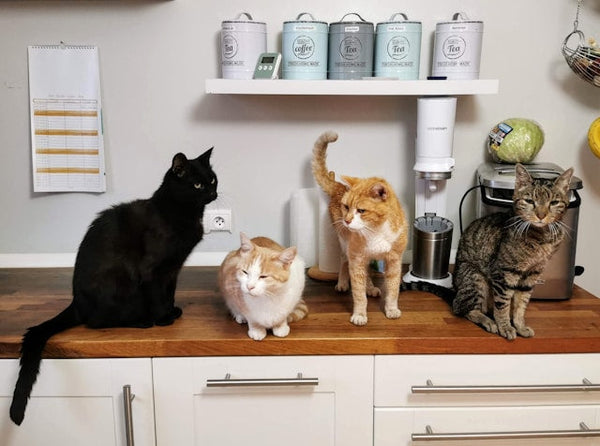If you’re a cat owner, you probably expect a certain level of bathroom etiquette from your feline friend—especially when it comes to the litter box. So when your cat leaves their poop or pee uncovered, it can be confusing, frustrating, and even a little gross. But before you assume your cat is just being rude, it’s worth understanding why some cats don’t cover their waste. There’s more to this behavior than meets the eye.
1. Instinct and Ancestry: Not All Cats Are the Same
In the wild, cats bury their waste to hide their presence from predators—or in the case of lower-ranking cats, to show deference to dominant ones. But not all cats follow this instinct equally.
-
Dominant behavior: Some cats purposely leave their waste uncovered as a way of marking territory or showing dominance. In multi-cat households, this can be a signal to others: “This is my turf.”
-
Wild roots: Domestic cats are descended from wildcats, and behaviors vary based on ancestry. Some cats just never learned to bury because their instincts don’t strongly push them to do so.
2. Health Issues: Pain or Discomfort May Be a Factor
If a cat suddenly stops covering their waste, it could point to an underlying medical problem:
-
Arthritis or injury: Older cats or those with joint pain may find digging painful.
-
Urinary tract infections, constipation, or digestive issues may make the litter box experience uncomfortable, leading to a rush to get out quickly.
-
If your cat’s behavior is new or paired with other symptoms (straining, vocalizing, avoiding the box), a vet visit is a must.
3. Litter Box Problems: The Setup Might Be Wrong
Cats are famously picky. If the litter box isn’t up to their standards, they might express their dissatisfaction by changing their habits.
-
Wrong type of litter: Scented, coarse, or dusty litters might irritate your cat’s paws or nose.
-
Not clean enough: Cats like a clean place to do their business. If the box is too dirty, some cats will go in and out quickly—no covering involved.
-
Box is too small or too high: An uncomfortable box can discourage natural digging behavior.
4. Learned Behavior or Lack of Learning
Kittens learn bathroom etiquette from their mothers. If a cat was orphaned young, separated early, or didn’t have proper socialization, they might not have learned to bury their waste.
In some cases, it’s just a habit your cat never picked up—and that’s okay. It doesn’t necessarily mean anything is wrong.
5. Stress and Environmental Changes
Stress can disrupt normal behavior in cats. Moving homes, a new baby or pet, loud noises, or even a change in litter brand can throw your cat off.
Stress-related changes may include:
-
Not covering waste
-
Avoiding the litter box
-
Going outside the box entirely
In these cases, helping your cat feel secure and giving them a quiet, stable environment often helps.
What Can You Do About It?
If you’re hoping to encourage your cat to cover their waste, try the following:
✅ Keep the litter box clean—scoop at least once a day.
✅ Experiment with different litters—unscented, clumping, or softer textures.
✅ Make the box accessible and comfortable—low sides for older cats, larger space for big cats.
✅ Reduce stress—use calming diffusers, maintain routines, and ensure a peaceful environment.
✅ Rule out medical issues—always consult your vet if there are sudden changes in behavior.
Final Thoughts
While it can be annoying to find an uncovered "gift" in the litter box, remember that your cat isn’t trying to offend you. Whether it’s instinct, discomfort, or confusion, there’s usually a reason—and often a solution. By observing your cat’s habits and making small changes, you can help them feel more comfortable and possibly encourage better litter box manners.
And if not? A good litter scoop and a little patience can go a long way.



